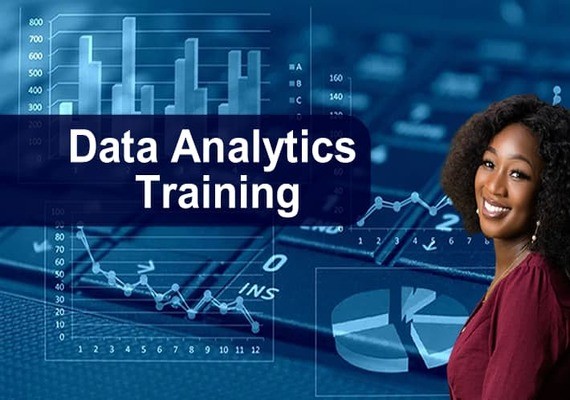
Overview of Data Analyst Training
The Data Analyst course at Ariyath Academy in Tiruvannamalai provides individuals with the essential skills and knowledge needed to excel as a data analyst. This comprehensive program covers a wide range of topics, starting from the fundamentals of data manipulation, cleaning, and visualization using tools like Excel or Python.
Participants delve into statistical concepts, exploratory data analysis techniques, and learn how to derive meaningful insights from datasets. The course also includes database querying languages such as SQL, enabling analysts to retrieve and organize data efficiently. Moreover, data visualization tools like Tableau or Power BI are introduced to enhance the communication of analytical findings.
Practical exercises, case studies, and real-world projects are integrated into the course to ensure hands-on application of learned concepts. The Data Analyst course equips individuals with the ability to interpret data, identify trends, and provide valuable insights that support informed decision-making within organizations.
Given the increasing demand for data-driven decision-making across various industries, this course at Ariyath Academy is instrumental in preparing individuals for successful careers in the dynamic field of data analysis. Participants can also opt for certifications like the Google Analytics Certification or other business analytics certifications to enhance their credentials and career opportunities in the data and analytics domain.
Syllabus
- • Overview of data analysis and its applications
- • Understanding the role of a data analyst in organizations
- • Basics of data types and structures
- • Data collection methods and sources
- • Handling missing data
- • Dealing with outliers
- • Data transformation and normalization
- • Basic and advanced functions in Excel
- • Pivot tables and data analysis tools
- • Descriptive statistics
- • Probability distributions
- • Statistical inference
- • Data visualization techniques
- • Identifying patterns and trends
- • Creating meaningful visualizations
- • Basics of databases
- • SQL (Structured Query Language) for data retrieval
- • Joining and aggregating data in SQL
- • Introduction to data visualization tools such as Tableau or Power BI
- • Creating interactive dashboards
- • Effective communication through visualizations
- • Basic programming concepts
- • Using Python or R for data manipulation and analysis
- • Popular libraries for data analysis (e.g., Pandas)
- • Advanced functions and formulas
- • Advanced data analysis tools in Excel
- • Overview of machine learning
- • Understanding supervised and unsupervised learning
- • Applications of machine learning in data analysis
- • Applying data analysis skills to real-world projects
- • Solving business problems through data analysis
- • Presenting findings effectively
- • Understanding ethical considerations in data analysis
- • Ensuring data privacy and security
- • Building a professional portfolio
- • Resume writing and interview preparation
- • Networking in the data analysis community
Why Data Analysts Are Needed in Today’s Workforce
Data Analysts play a crucial role in today's workforce due to their expertise in Data Analytics, which involves extracting valuable insights from raw data. This skill is highly coveted in the IT marketplace, spanning various sectors like healthcare, finance, retail, real estate, education, gaming, and more.
Data Analytics revolves around leveraging data to drive future decisions. It assists companies in addressing challenges such as risk mitigation, operational enhancements, and fraud detection. Moreover, Data Analytics places significant emphasis on data visualization to effectively communicate findings to stakeholders.
Learn with Real-World Projects
Our course emphasizes hands-on learning with real-world projects, providing students with practical experience in gathering, analyzing, and visualizing data using a range of tools and technologies. This project-based approach is designed to equip students with the skills needed to support businesses in decision-making and strategic planning.
IThroughout the training, students will have the opportunity to work on multiple real-world projects, allowing them to apply their knowledge and enhance their careers in analytics.
The course covers both predictive and prescriptive analytics through engaging case studies:
• Predictive analytics involves using regression models and forecasting techniques to analyze historical data and predict future outcomes.
• Prescriptive analytics focuses on optimizing decision-making by leveraging tools such as Scenario Manager and Solver to address constraints effectively.
Upcoming Batches
| October 4 | SAT & SUN weekend batch |
Timings 9:00AM to 11:00AM |
| October 11 | SAT & SUN Online batch |
Timings 9:00AM to 11:00AM |
| October 23 | MON & THU Offline batch |
Timings 9:00AM to 11:00AM |
| October 27 | MON & THU Blended batch |
Timings 9:00AM to 11:00AM |







